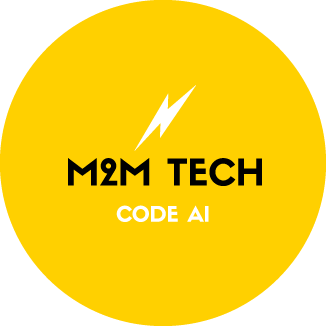What is Data Scientist?
A Data Scientist is a skilled professional who combines expertise in mathematics, statistics, programming, and domain knowledge to extract valuable insights and solve intricate problems using data. In today's data-driven world, organizations across industries rely on Data Scientists to make informed decisions, drive innovation, and gain a competitive edge.
At the core of their role, Data Scientists are responsible for collecting, cleaning, and preprocessing data from various sources. This involves extracting relevant information, ensuring data quality, and preparing it for analysis. They employ exploratory Data Analysis techniques to uncover patterns, relationships, and anomalies within the data, gaining a deep understanding of its characteristics and limitations.
Data Scientists employ a range of statistical methods, machine learning algorithms, and predictive modeling techniques to build robust models. By leveraging these models, they can make data-driven predictions, generate insights, and address complex business challenges. Feature engineering is a critical step in the model-building process, where Data Scientists identify and transform relevant variables that capture the essential aspects of the problem.
Model evaluation is a crucial aspect of a Data Scientist's work. They assess the performance of models using appropriate metrics and validation techniques to ensure their accuracy, reliability, and generalizability. Effective communication skills play a vital role as Data Scientists need to present their findings and insights to both technical and non-technical stakeholders. They employ data visualization techniques to effectively communicate complex information, enabling stakeholders to grasp the key takeaways and make informed decisions.
Data Scientists collaborate closely with cross-functional teams, including domain experts, software engineers, and business stakeholders. By working together, they ensure that the insights derived from Data Analysis align with business objectives and can be integrated into practical solutions. Furthermore, Data Scientists stay updated with the latest advancements in the field, continuously learning and honing their skills to stay at the forefront of data science innovation.
“ Data Scientists use advanced analytics technologies, including machine learning and predictive modelling, to support the identification of trends, scrape information from unstructured data sources and provide automated recommendations. They are employed by consulting firms, universities, banks and information technology departments in the private and public sectors.”
The most important things to consider
Problem Understanding and Formulation: One of the most critical tasks of a Data Scientist is understanding the problem at hand and formulating it in a way that can be addressed using data and analytical methods. This involves actively engaging with stakeholders to gain a deep understanding of their needs, challenges, and goals. By clarifying the problem and defining the key objectives, you can ensure that your Data Analysis efforts are focused and aligned with the desired outcomes.
Data Exploration and Preparation: Thoroughly exploring and preparing your data is crucial for accurate and reliable analyses. This includes assessing data quality, identifying and handling missing values or outliers, and performing appropriate data transformations and feature engineering. By investing time in data exploration and preprocessing, you can lay a strong foundation for subsequent modeling and analysis steps, minimizing potential biases and errors.
Model Selection and Evaluation: Choosing the right modeling techniques and evaluating their performance effectively are essential components of data science. Consider various algorithms and approaches based on the problem requirements, data characteristics, and desired outcomes. Carefully evaluate and validate models using appropriate evaluation metrics, cross-validation, or holdout sets to ensure their effectiveness and generalizability. Regularly iterate and refine your models to improve their performance and address any limitations.
- Salary Low: $50,776.00
- Salary High: $124,102.00
- Education Needed: Bachelor's

Job Duties
- Implement cutting-edge techniques and tools in machine learning, deep learning and artificial intelligence to make Data Analysis more efficient.
- Perform large-scale experimentation to identify hidden relationships between variables in large datasets
- Create advanced machine learning algorithms such as regression, simulation, scenario analysis, modeling, clustering, decision trees and , neural networks
- Prepare and extract data using programming language
- Implement new statistical, machine learning, or other mathematical methodologies to solve specific business problems
- Visualize data in a way that allows a business to quickly draw conclusions and make decisions
- Coordinate research and analysis activities using unstructured and structured data and use programming to clean and organize data
Employment Requirements
- A bachelor's degree in statistics, mathematics, computer science, computer systems engineering or a related discipline or completion of a college program in computer science is usually required.
- A master's or doctoral degree in machine learning, data science, or a related quantitative field is usually required.
- Experience in programming is usually required.
- Experience in statistical modelling or machine learning is usually required








